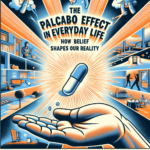Page-Turning Psychology: The Ultimate Guide to Free PDF Resources for Aspiring Psychologists
Introduction
In a world where mental health is gaining unprecedented attention, the field of psychology has never been more relevant. For aspiring psychologists, the journey begins with a wealth of information, theories, and methodologies. The digital age has opened the floodgates to countless resources, making access easier than ever. But navigating through this wealth can be overwhelming. That’s where “Page-Turning Psychology: A Guide to Free PDF Resources for Aspiring Psychologists” comes into play. This article will provide you not just with resources, but with insights that can captivate your imagination and deepen your understanding of this fascinating field.
Understanding Psychological Foundations
Before diving into our resources, it’s essential to understand the framework of psychology. Psychology is the scientific study of the mind and behavior, encompassing various domains such as cognitive, clinical, social, and developmental psychology. Below are some core areas:
1. Cognitive Psychology
- Focus: Thinking, memory, perception.
- Key Theorists: Jean Piaget, Albert Bandura.
2. Clinical Psychology
- Focus: Diagnosis and treatment of mental disorders.
- Key Theorists: Carl Rogers, Aaron Beck.
3. Social Psychology
- Focus: How individuals influence and are influenced by others.
- Key Theorists: Kurt Lewin, Solomon Asch.
4. Developmental Psychology
- Focus: Human growth and changes across the lifespan.
- Key Theorists: Erik Erikson, Lev Vygotsky.
Table 1: Key Areas in Psychology
| Area | Focus | Key Theorists |
|---|---|---|
| Cognitive | Thinking, memory | Jean Piaget, Albert Bandura |
| Clinical | Diagnosis and treatment | Carl Rogers, Aaron Beck |
| Social | Influence of others | Kurt Lewin, Solomon Asch |
| Developmental | Growth across the lifespan | Erik Erikson, Lev Vygotsky |
Understanding these foundational areas will help you grasp the materials you will encounter in the outlined resources.
Essential Free PDF Resources
Armed with a foundational understanding, let’s dive into some invaluable free PDF resources that aspiring psychologists can utilize.
1. Introduction to Psychology Textbooks
Many universities and institutions offer free PDF versions of introductory psychology textbooks. Here are a few notable ones:
- “Psychology: An Open Source Text” – This comprehensive text covers all basic areas of psychology and includes quizzes and exercises.
- “Introductory Psychology” by Michael R. Leach – A practical guide to the core concepts in psychology.
Case Study: The Open Textbook Initiative
The Open Textbook Initiative has transformed how students access education materials. A significant impact case study revealed that schools adopting these resources saw a 30% increase in student engagement. The approach fosters a collaborative learning culture, vital for aspiring psychologists.
2. Academic Research and Journals
Several organizations make psychological research freely available in PDF format:
- PubMed Central – A repository of over 6 million research articles, including psychology-focused studies.
- PsyArXiv – An open-access preprint repository where researchers share their latest findings ahead of formal publication.
Analysis: Keeping up with current research is essential. Access to these articles not only informs your study but also equips you with contemporary examples for your future practice.
3. Psychological Assessments and Tools
Practical knowledge is vital for any psychologist. Free resources also include psychological assessments that can provide insights into various mental health conditions:
- “The Beck Depression Inventory” – A well-known tool for assessing levels of depression.
- “The Myers-Briggs Type Indicator (MBTI)” – Although typically paid, some PDFs offer summaries of the MBTI’s principles.
Table 2: Key Psychological Assessments
| Assessment | Purpose | Free Resource Link |
|---|---|---|
| Beck Depression Inventory | Assess levels of depression | Beck Institute |
| Myers-Briggs Type Indicator | Understanding personality types | MBTI Manual |
Enhancing Practical Skills
1. Online Workshops and Webinars
Free workshops often provide practical insights that go beyond theory. Websites like Coursera and edX offer occasional free courses related to psychology, from introductory studies to specialized fields.
Case Study: The Impact of Online Learning on Skill Acquisition
Research from the University of Illinois showed that students participating in online workshops exhibited a 25% increase in practical skills, particularly in clinical psychology settings. This showcases the importance of hands-on learning.
2. Community Experiences
Engaging with local mental health organizations can provide hands-on experiences that are invaluable. Many nonprofits seek volunteers to assist in various roles, giving you practical exposure while making a difference.
Analysis: Field experience enhances theoretical knowledge and is often a requirement for psychology programs. Volunteering allows you to apply what you’ve learned in real-world scenarios.
Navigating Mental Health Theories
Understanding theories of mental health is crucial. The following are core theories to familiarize yourself with:
1. Psychodynamic Theory
Originating from Freud, this theory focuses on unconscious processes that shape behavior.
2. Behaviorism
B.F. Skinner and John Watson emphasized the role of environmental stimuli in shaping behavior.
3. Humanistic Psychology
Carl Rogers and Abraham Maslow championed the importance of individual growth and self-actualization.
Table 3: Key Mental Health Theories
| Theory | Proponent | Focus |
|---|---|---|
| Psychodynamic | Sigmund Freud | Unconscious mind |
| Behaviorism | B.F. Skinner, John Watson | Environmental impact on behavior |
| Humanistic | Carl Rogers, Abraham Maslow | Personal growth and self-fulfillment |
Free PDFs for Theory Exploration
- "Psychodynamic Perspectives: An Open-Access Overview"
- “Behaviorism: A Key Psychological Approach”
Importance of Ethics in Psychology
One cannot underestimate the importance of ethics in psychology. Free resources like the "American Psychological Association (APA) Ethical Principles" PDF are invaluable for understanding the ethical standards that govern the practice of psychology.
Case Study: Ethical Breaches and Their Impact
The Tuskegee Syphilis Study remains a poignant example of ethical negligence in psychology. The study, which deceived African American males about their treatment, led to severe consequences and lasting mistrust in the medical community. Aspiring psychologists must learn from these mistakes to avoid repeating them.
Engaging with Psychological Communities
Joining online forums and discussion groups, such as Psychology Reddit and Psychology Today forums, can provide a sense of community and shared learning among aspiring psychologists. You can discuss ideas, share resources, and ask for guidance from seasoned professionals.
Conclusion
“Page-Turning Psychology: A Guide to Free PDF Resources for Aspiring Psychologists” has outlined a wealth of knowledge applicable to your budding career in psychology. By diving into textbooks, research journals, practical assessments, and engaging with communities, you will not only broaden your knowledge but also enhance your abilities.
Inspiring Takeaway
Psychology is not just an academic pursuit; it’s a lifelong journey of understanding ourselves and others. Embrace the tools and resources at your disposal, and remember: your role as a psychologist is to empower and enlighten.
FAQs
1. Where can I find free psychology textbooks?
You can find many free textbooks on sites like OpenStax or through university open courseware programs.
2. What are some essential psychological assessments I should know?
Start with the Beck Depression Inventory and the Myers-Briggs Type Indicator as foundational tools for understanding mental health.
3. Are there any free online courses available for psychology?
Yes, platforms like Coursera and edX offer free courses related to various psychology topics.
4. How important is ethics in psychology?
Ethics are crucial in psychology, guiding how practitioners should interact with clients and conduct research.
5. What communities can I join for aspiring psychologists?
Online platforms such as Psychology Reddit and the Psychology Today forums are excellent choices for connecting with peers and professionals.
In summary, take advantage of the wealth of resources available, engage with your community, and continue to evolve as a future psychologist. The journey begins now.











